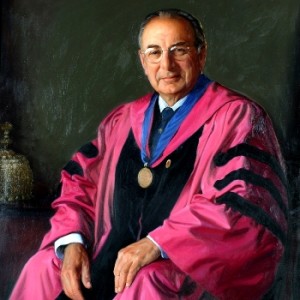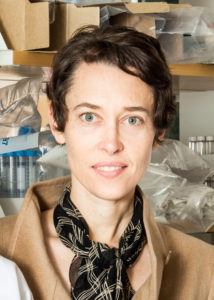MORTON F. GOLDBERG, MD, FACS, is the Joseph E. Green Professor of Ophthalmology and director emeritus at the Wilmer Eye Institute of the Johns Hopkins University School of Medicine and Hospital in Baltimore. From 1989-2003, he served as the director and William Holland Wilmer Professor of Ophthalmology at the Wilmer Eye Institute. He received his AB and MD degrees with honors from Harvard College and Harvard Medical School respectively and completed an ophthalmic residency and chief residency at Wilmer, followed by a medical genetics fellowship with Professor Victor McKusick. In 1970, at the age of 32, Dr. Goldberg became professor and chairman of ophthalmology at the University of Illinois College of Medicine in Chicago. He returned to Wilmer in 1989 as director.
Dr. Goldberg’s major interests include vascular retinal diseases, including sickle cell eye disease, incontinentia pigmenti, and diabetes. He has authored and edited 10 books and over 500 scientific and clinical publications. He has served as president of the Macula Society, the Association for Research in Vision and Ophthalmology, and the Association of University Professors in Ophthalmology. He also served for ten years as editor of the Archives of Ophthalmology.
His awards include membership in the Institute of Medicine (National Academy of Medicine), the Howe Medal of the American Ophthalmological Society, an honorary MD degree from the University of Coimbra in Portugal, and an Honorary Fellowship in the Royal Australian College of Ophthalmologists. In 1999, Ophthalmology Times selected him as one of the 10 Greatest Living Ophthalmologists. He is the recipient of the Ida Mann Medal of Oxford University, the Isaac Michaelson Medal of the Israel Academy of Natural Sciences, the David Paton Medal of Baylor University, the Weisenfeld Prize of ARVO, and the Arnall Patz Medal of the Macula Society.
Dr. Goldberg currently serves as chairman of the board of the Clinical Research Institute of the Foundation Fighting Blindness, Inc., a member of the board of directors of EyeGate Pharmaceuticals, Inc., and a trustee of the RYR-1 Foundation, which he co-founded.
During his time as director of Wilmer, Dr. Goldberg inspired the excellence of Wilmer physicians, scientists, nurses, administrators, and staff, as well as the generosity of Wilmer’s alumni and friends. His tenure saw Wilmer consistently serve as the leading recipient of NIH funding for ophthalmic research.
Recognizing the freedom that philanthropic support provided faculty at Wilmer, Dr. Goldberg specifically championed endowed professorships as “the best way to ensure the future excellence of our combined mission of research, teaching, and patient care and provide maximum stewardship of funds given to us.” So, it was fitting that in 2003, patients, colleagues, and friends joined together to honor the brilliance of Dr. Goldberg’s tenure as director of the Wilmer Eye Institute with the creation of the Morton F. Goldberg Professorship.

 JENNIFER ELISSEEFF, PhD, is a professor and the director of the Translational Tissue Engineering Center at the Johns Hopkins Department of Biomedical Engineering and the Wilmer Eye Institute with appointments in chemical and biological engineering, materials science, and orthopedic surgery.
JENNIFER ELISSEEFF, PhD, is a professor and the director of the Translational Tissue Engineering Center at the Johns Hopkins Department of Biomedical Engineering and the Wilmer Eye Institute with appointments in chemical and biological engineering, materials science, and orthopedic surgery.